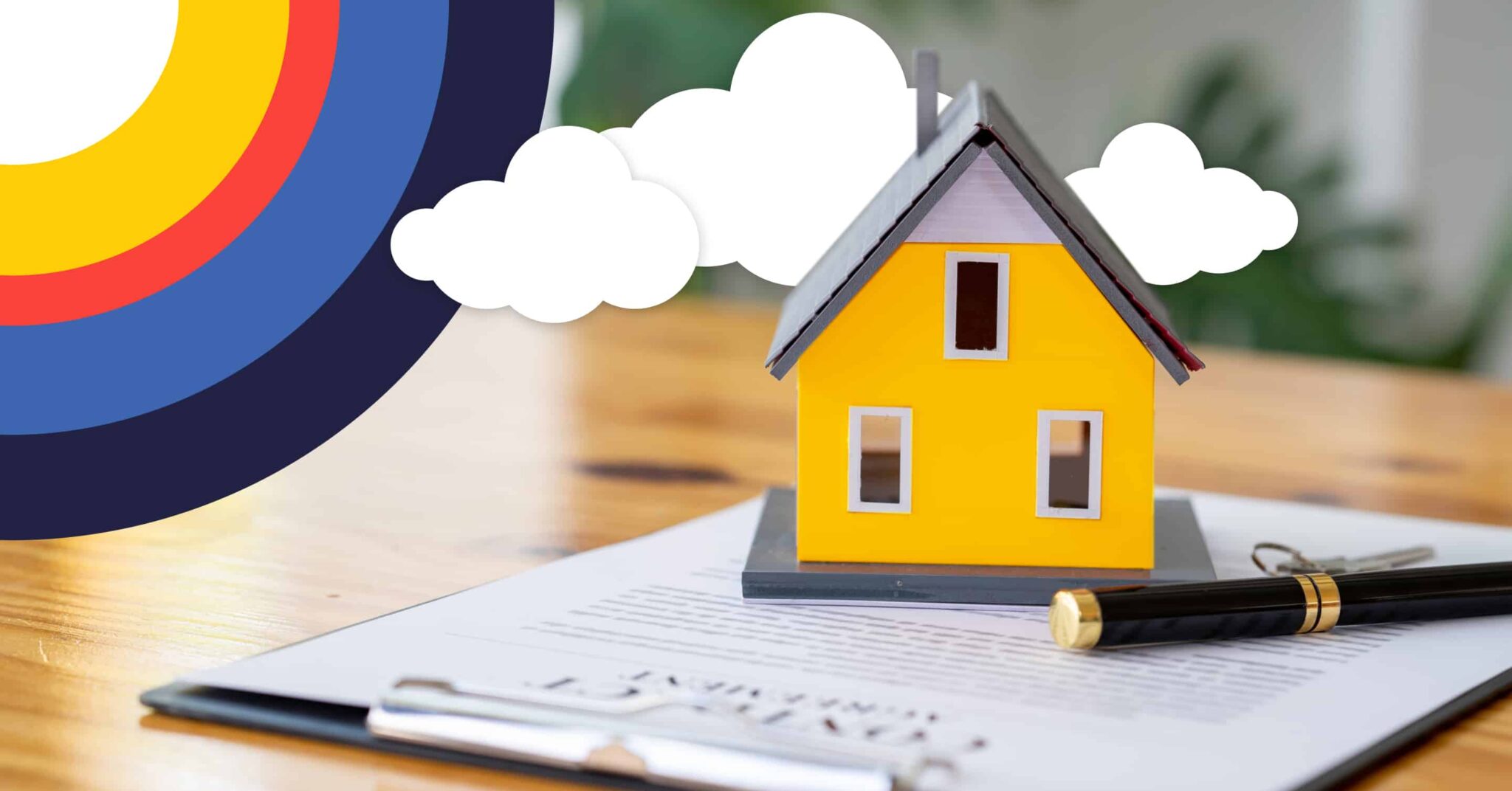How to Buy a House After a Divorce in Canada

Table of contents
Author: Mike, bravadoautogroup.com
So, you’re getting a divorce. It’s an emotionally taxing time, and the last thing on your mind is probably buying a house. But if you’re like most people in Canada, buying a home will be one of your biggest expenses – so it’s important to know what to do. Here’s a definitive guide on how to buy a house after a divorce in Canada.
Key Takeaways
- The steps to take to buy a house after divorce
- The importance of considering current financial standing and housing
- The key to buying a house after a divorce is waiting for legal proceedings to finalize.
How to buy a house after a divorce
It’s no secret that buying a house after a divorce can feel complicated and overwhelming. However, when you surround yourself with support and wise counsel, it can be a simple process. You can still purchase your dream home, even after you have experienced a split. Keep in mind that each situation is different. Whether you’re looking into buying a house after separation before a divorce or after your divorce has already been finalized, there are steps you can take to smooth out the wrinkles.
There are typically two options when buying a house after divorce. You can either take over the purchase of your existing family home, or you can choose to relocate and buy a new home. Some choose to stay in their family home, while others prefer to experience new surroundings. If you do choose to relocate, it’s important to remember that there will be many more things to research and take into consideration. You may need to research new potential areas, hire professional movers, research car shipping quotes, and say goodbye to friends and family.
In either case, leave it up to us to fill you in on all you need to know about how to buy a house after a divorce. Whether you’re wanting to take over the mortgage of your current home, or you’re ready to experience fresh and new scenery, we’ve got you covered.
Current housing considerations
Post-divorce, many people find themselves struggling with the decision of whether or not to buy a house. On one hand, it can be a fresh start – a chance to begin anew in a space that is wholly yours. On the other hand, buying a house married but separated can be a huge financial undertaking at a time when you may already be feeling uncertain and vulnerable. There are a few key things to look at to determine if you are ready to move forward with the purchase of a new home:
Income
Can you buy a house while going through a divorce? This is a question that can be answered by taking an honest look at your finances. After all, your financial situation will likely be different than it was during your marriage. You may no longer have two incomes to rely on, and you may also have more expenses, such as child care or alimony payments.
Therefore, getting a loan during divorce can be difficult and that’s why it’s important to have a clear picture of your finances before you start shopping for a new home. Otherwise, you could end up in over your head financially.
Combined assets
Before you make any decision about buying a house during a divorce, it’s important to consider your combined assets. This includes not only your savings and income, but also any property or investments that you may have. If you’re able to sell these assets and split the proceeds evenly, then you could have funds to go toward a downpayment and closing costs on your new home.
Credit implications
Buying a house after divorce is finalized can be difficult if the divorce had an impact on your credit. While the actual divorce itself won’t show up on your credit report, there are a few ways it can affect your score. If you and your spouse have joint credit card accounts, they will likely be closed when you divorce. This can cause your credit utilization ratio to go up, which can hurt your score.
Sometimes, figuring out who pays what in those first months can be tricky, and if you miss any payments during this period, it could also negatively impact your credit.
To minimize the risk of these things occurring, you can keep joint accounts open until all debts are paid off, and make sure to keep up with all of your payments to avoid any credit hits that would impact your ability to buy a house on your own.
Getting out of your old mortgage
Mortgage terms are usually decided based on the incomes of both partners at the time the mortgage is agreed upon. If one partner later decides to leave the household, it can have a big impact on their ability to keep up with mortgage payments.
In some cases, it may be possible to transfer the mortgage to the name of the partner who is staying in the house, especially if the husband bought a house while separated, and the family home is free to go directly to the other spouse. However, this will usually only be possible if that partner can prove that they have a good income and are able to keep up with repayments.
In some cases, it may be necessary to sell the property and divide the proceeds between the two partners. If the remaining partner can’t prove adequate income to take over the mortgage, selling may be the best option.
Removing your ex from the title
If you’re wondering how to get the house in a divorce, take hope. It doesn’t have to be that complicated. Removing your ex from the title of your home can be a tricky process if you have joint ownership of the home.
To remove your ex from the title of your home, you’ll need to file for a quitclaim deed. A quitclaim deed is when your ex-spouse gives up all rights to the property. The signed document will be notarized in front of an official, after which you file it with county authorities to make public that they are no longer owners or borrowers on the property.
The final step for removing someone else’s name from deeds involves filing their mark “quit claim” which means they will no longer be on the deed. If there is still a mortgage on your home, most of the time, the removed partner will also want to be removed from the loan when their name is removed from the deed.
Deciding to stay in your current home
After a divorce, you may want to stay in the family home and keep it instead of starting fresh. You may worry about being able to afford the mortgage or other expenses on your own, but may also feel emotionally attached to the home and reluctant to leave it behind. This is totally normal, especially when there have been good memories shared in the home.
There are actually some advantages to staying in your current home after a divorce. For one thing, you will already be familiar with your surroundings and won’t have to go through the hassle of moving. You will also have more control over your living situation and won’t have to deal with the added stress of finding a new place to live.
You will also need to consider how you will take over your existing mortgage. There are typically two options that you have to take over the financing of your home.
Refinancing your mortgage
If you and your spouse are both on the mortgage, you may want to consider refinancing into your own name. This can be a good way to keep your home and maintain control over the property and to avoid buying a house while separated.
There are a few things to keep in mind if you’re considering refinancing your mortgage after a divorce.
- You’ll need to make sure that you can qualify for a loan on your own. This means having a good credit score and income.
- You’ll also need to have enough equity in your home to cover the costs of refinancing. If your home is worth less than you owe, you may not be able to get it refinanced without putting a significant down payment toward it.
Once you’ve determined that you can qualify for a loan, it’s time to start shopping around.
- Talk to different lenders and compare rates and fees.
- Be sure to ask about any special programs or discounts that might be available to help you refinance your mortgage after a divorce.
Refinancing your mortgage can be a good way to keep your home after a divorce. Just be sure to do your research and compare rates before you commit to a specific lender.
Steps to buying a home after a divorce
After a divorce, the thought of buying a home may seem overwhelming. Not only do you have to consider your finances, but you also have to think about your housing needs and what kind of environment you want to live in. But what about if your divorce isn’t finalized yet? You’re likely thinking: Can I buy a house if I’m not divorced yet? With some careful planning, the process of buying a home can be made smoother with the correct advice and counsel. Here are a few steps to get you started:
Finalize your legal proceedings
One of the most important steps to take when buying a home after a divorce is to finalize all legal proceedings. This includes not only the divorce itself, but also any property settlement agreements.
Once these agreements are in place, you’ll be able to move forward with the home-buying process without any outstanding legal issues.
However, there are some situations when people decide to separate without the legality of divorce. Are you wondering– can I buy a house if I’m married but separated? This question may not be as easy to answer. If you’re divorced, you’ll likely have an easier time buying a house than if you’re still married but living apart from your spouse.
This is because lenders usually require your spouse’s income and debt to be considered in the debt-to-income ratio for the new home.. However, there may be some exceptions to this rule, so it’s always best to speak with a lender to find out what your options are.
Figure out how much you can afford
It’s also important to understand how your divorce will affect your finances. You’ll need to know what kind of budget you’re working with and whether you’ll be able to get a mortgage. Once you know what you can comfortably afford each month, you can move forward with confidence.
Divide your finances
After a divorce, it’s important to take a close look at your finances and decide what you can afford when it comes to buying a new home. If you’re used to living on one income, you’ll need to make some adjustments to your budget. Here are a few tips to help you get started:
- Make a list of your income and expenses. This will help you get an idea of where your money is going each month.
- Determine what you can realistically afford to spend on housing. Remember, you’ll need to factor in things like utilities, insurance, and property taxes.
- Start saving for a down payment. This will usually be around 20% of the purchase price of the home.
- Get pre-approved for a mortgage. This will give you an idea of how much you’ll be able to borrow and what interest rate you’ll qualify for.
- Shop around for the best deal on a mortgage. There are a lot of options out there, so take your time and compare rates and fees before making a decision.
- Work with a real estate agent who is familiar with the divorce process. They can help you navigate the often complicated process of finding and buying a new home.
Show your payment history
If you’re going through a divorce, there are some extra steps you’ll need to take in order to get approved for a loan. Here’s what you need to know.
- First, you’ll need to show your payment history to the loan provider. This means providing documentation of all your monthly bills, including mortgage payments, credit card payments, and any other debts you may have. This will show the lender that you’re capable of making regular payments on time.
- Next, you’ll need to provide proof of income. This can be in the form of tax returns, pay stubs, or any other documentation that shows how much money you bring in each month. The lender will use this information to determine how much they’re willing to lend you.
- Finally, you’ll need to have a good credit score. This number is used to determine your risk level as a borrower, and the higher your score, the better chance you have of getting approved for a loan. If your score is low, there are some things you can do to improve it before applying for a loan.
If you’re going through a divorce and looking to buy a new home, following these steps will help increase your chances of getting approved for a loan.
Frequently Asked Questions (FAQ)
After a divorce, it’s normal to have a lot of questions about finances. For example, you might be wondering how you will afford to live on your own, how you will pay for your child’s education, or what will happen to your retirement savings. The good news is that there are many resources available to help you answer these questions and make financial decisions after divorce.
How hard is it to buy a house after divorce?
Going through a divorce is tough enough, but once the dust has settled, there’s another potential obstacle to contend with: buying a house. One of the biggest benefits of owning a home is the equity that builds up over time. However, after a divorce, that equity is usually divided between the two parties.
This can leave both spouses cash-strapped and in need of financing. What’s more, divorce can have a negative impact on credit scores, making it harder to qualify for a mortgage. And even if you are able to secure financing, the process of buying a home can be fraught with emotion, especially if you have children.
Fortunately, there are steps you can take to make the process as smooth as possible. For instance, try to keep communication open with your ex-spouse, work with a real estate agent you trust, and be realistic about your budget. By taking things one step at a time, you can achieve your goal of owning a home after divorce.
Is it better to rent or buy after a divorce?
After a divorce, it can be tough to decide whether to rent or buy a new home. There are pros and cons to both options, and the best choice will ultimately depend on your unique circumstances. If you’re looking for flexibility, then renting may be the way to go. You can move more easily if you need to, and you’re not tied down to one property. Renting is also a great option if you aren’t able to secure a mortgage, and in this case, renting may be your only option.
Buying a home can give you a sense of stability and permanence after a divorce. Plus, you’ll build equity over time that can help you financially in the future. If you are able to take over the existing mortgage of your home, you will be able to keep the current interest rates and loan terms. But ultimately, there’s no right or wrong answer when it comes to renting or buying after a divorce. It just depends on your needs!
How does a mortgage buyout work?
A mortgage buyout occurs when the owner of a property pays off their mortgage in full. This can be done either by refinancing the mortgage with a new loan, or by selling the property and using the proceeds to pay off the mortgage.
Mortgage buyouts are often used as a way to avoid foreclosure, as they allow the homeowner to keep ownership of the property and avoid damaging their credit score. In some cases, homeowners may also choose to buy out their mortgage in order to sell the property for a profit.
Final Thoughts
Buying a house after divorce doesn’t have to be stressful and complicated. With the right advice on your side, you can get your ducks in a row and make the process smoother. However, it’s important to understand that buying a home always has its unique stressors, even when divorce is not a part of the picture. Remember to show yourself grace during this big transition period. Surround yourself with support and wise counsel, and take breaks, clear your head and refocus when you run into any obstacles. With these tips, you’ll be the proud owner of your new home in no time.
Ready to get started?
In just a few clicks, you can see our current rates. Then apply for your mortgage online in minutes!
in this series Homeownership Planning
- How to Buy a House After a Divorce in Canada currently reading
- smart ways become homeowner sooner next read
- 10 Steps to Prepare Your Family Financially next read
- How Much Are Monthly Carrying Costs for Homeowners in Canada? next read
- Buying a House Before vs After Marriage next read
- Should You Pay Property Taxes With Your Mortgage? next read















